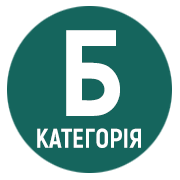IMAGE OF THE SEA IN MODEN UKRAINIAN NOVEL
DOI:
https://doi.org/10.31494/2412-933X-2019-1-9-59-66Keywords:
novel, image of the sea, marine landscapes, artistic details, psychological characteristic, mythologem.Abstract
The peculiarities of artistic representation image of the sea in the modern Ukrainian novels based on such works as ‘The Sea’, ‘Venice’ by S. Grabar, ‘Brach Island’ by L. Taran, ‘Uncatchable’ by I. Rozdobudko, ‘I Don’t Want to Go to the Sea’ by S. Osoka and ‘The Sea Swallowed Us’ by K. Kalytko are described. This topic has not been the subject of literary research yet. The sea is represented in various ways: philosophical, psychological and mythological. But mainly it is used to describe psychological portraits of the main characters. The in-depth psychological meaning of each novel is reached using mythologems and symbolic objects, such as waves interpreted directly and metaphorically as an inner personal mental state (‘Brach Island’ by L. Taran) and the human being similar to wave sometimes (‘Uncatchable’ by I. Rozdobudko). The sea itself being a wild and uncontrolled natural power (‘The Sea’ by S. Grabar) very often is used as a symbolic object projected into the human (‘I Don’t Want to Go to the Sea’ by S. Osoka). A lot of attention is paid to the artistic details which reveal character psychology, their inner feelings. Symbolic water mythologem is marked with ambivalence: water as a symbol of life, female beginning, regeneration and at the same time – the symbol of death, calmness and as an intermediary between the living and the dead. Therefore the sea has a twisted meaning which becomes a key point in depicting the conceptual world of a human as a binary state ‘life-death’ (‘The Sea Swallowed Us’ by K. Kalytko). An important element connected to water mythologem is the river concept which gets the archetypal meaning symbolizing time flow and a sacral place in the main characters’ life (‘Yateri’, ‘Night bathing in August’ by S. Osoka). Among other vivid characteristics of the sea is its impressionistic complexity (‘Venice’ by S. Grabar, ‘Brach Island’ by L. Taran).
References
Грабар С. Ритуал: оповідання, новели, етюди / C. Грабар. – Київ : Ярославів вал, 2015. – 408 с.
Заверталюк Н. Море і степ як онтологічні парадигми українства у романістиці Олеся Гончара / Н. Заверталюк // Актуальні проблеми слов'янської філології: міжвузівський зб. наук. ст. : Лінгвістика і літературознавство. – Бердянськ: БДПУ, 2011. – Вип. ХХІV., Ч.1. – С. 77–84.
Калитко К. Земля загублених, або Маленькі страшні казки [текст]: оповідання / К. Калитко. – Львів : Видавництво Старого Лева, 2017. – 224 с.
Науменко Н. Літературна мариністика як синтез мистецтв: проза та поезія / Н. Науменко // Волинь філологічна: текст і контекст. Явище синтезу мистецтв в українській літературі: Зб. наук. пр. − Луцьк: РВВ “Вежа” Волин. держ. ун-ту ім. Лесі Українки, 2008. – Вип. 5. – С. 34–48 // Електронний ресурс: https://volyntext.eenu.edu.ua/index.php/volyntext/issue/view/15
Осока С. Нічні купання в серпні [текст]: коротка проза / С. Осока. – Львів : Видавництво Старого Лева, 2016. – 224 с.
Роздобудько І. Портрети невідомих: новели / І. Роздобудько. – Київ : “ВЦ Академія”, 2019. – 192 с.
Таран Л. Остання жінка, останній чоловік [текст] : оповідання / Л. Таран. – Львів : Видавництво Старого Лева, 2016. – 272 с.
Тихолоз Б. Філософська мариністика Г. Сковороди та І. Франка / Б. Тихолоз // Українська мова й література в середніх школах, гімназіях, ліцеях та колегіумах. – 2003. – № 6. – С. 122–132.






